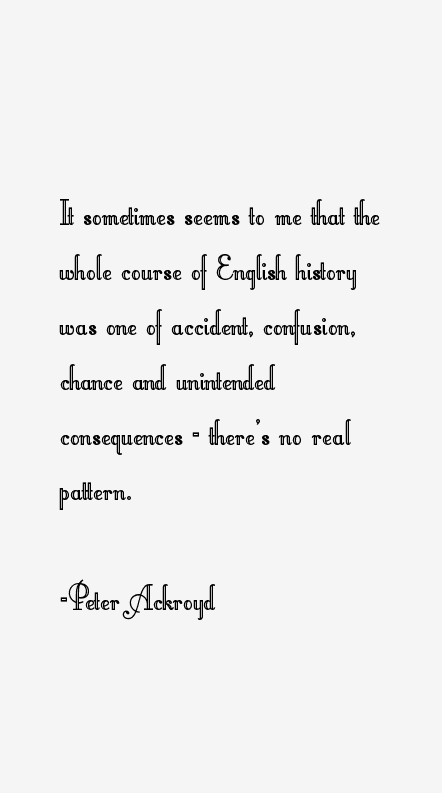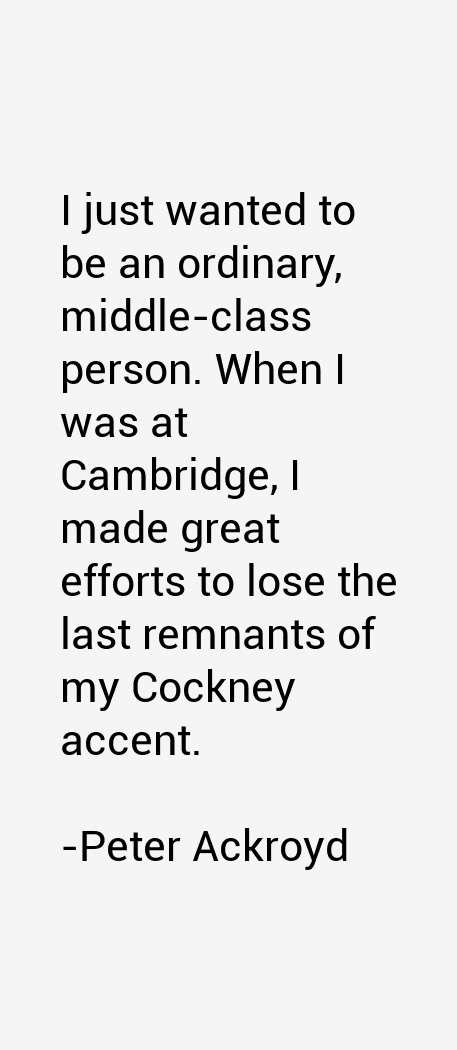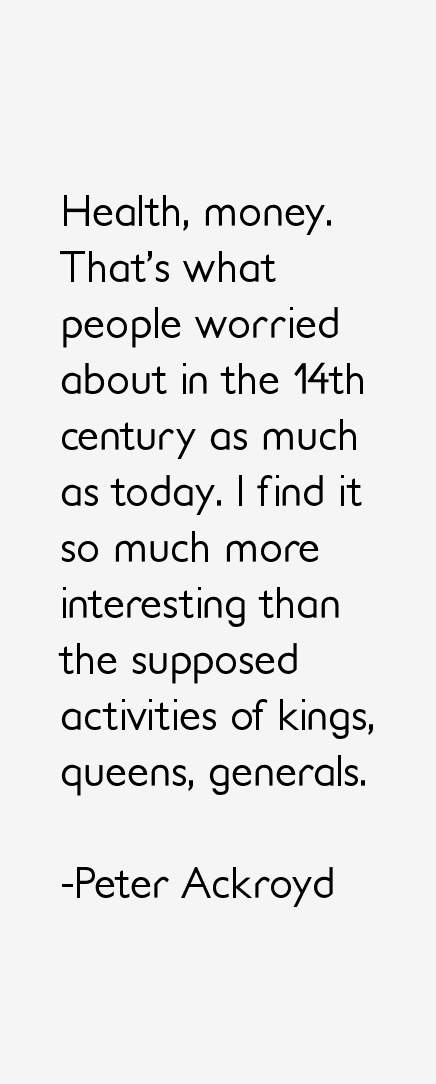Peter Ackroyd Quotes & Sayings
49 most famous Peter Ackroyd quotes and sayings. These are the first 10 quotes we have for him. He's a 76 year old British author born on Oct 5, 1949.
“I don't know if I have a voice of my own. I don't see me being an important person with something to say. I haven't. I've got nothing to say. My opinion is of no consequence or value.”
“It may seem unfashionable to say so, but historians should seize the imagination as well as the intellect. History is, in a sense, a story, a narrative of adventure and of vision, of character and of incident. It is also a portrait of the great general drama of the human spirit.”

“It sometimes seems to me that the whole course of English history was one of accident, confusion, chance and unintended consequences - there's no real pattern.”
“All cities are impressive in their way, because they represent the aspiration of men to lead a common life; those people who wish to live agreeable lives, and in constant intercourse with one another, will build a city as beautiful as Paris.”

“I just wanted to be an ordinary, middle-class person. When I was at Cambridge, I made great efforts to lose the last remnants of my Cockney accent.”
“I have always believed that the material world is governed by nonmaterial sources, so that in that sense 'English Music' is an exercise in the spiritual as well as the material. I have always been attracted to the Gothic and spiritual imagination, and I've always been interested in visionaries.”

“Health, money. That's what people worried about in the 14th century as much as today. I find it so much more interesting than the supposed activities of kings, queens, generals.”
“Thomas More's birth was noted by his father upon a blank page at the back of a copy of Geoffrey of Monmouth's 'Historia Regum Britanniae'; for a lawyer John More was remarkably inexact in his references to that natal year, and the date has been moved from 1477 to 1478 and back again.”
“His head was boiled, impaled upon a pole and raised above London Bridge. So ended the life of Thomas More, one of the few Londoners upon whom sainthood has been conferred and the first English layman to be beatified as a martyr.”
“I enjoyed reading and learning at school, and at university I enjoyed extending my reading and learning. Once I left Cambridge, I went to Yale as a fellow. I spent two years there. After that, George Gale made me literary editor of 'The Spectator.'”
Peter Ackroyd Quotes Rating
No Ratings Yet
Leave A Comment
























